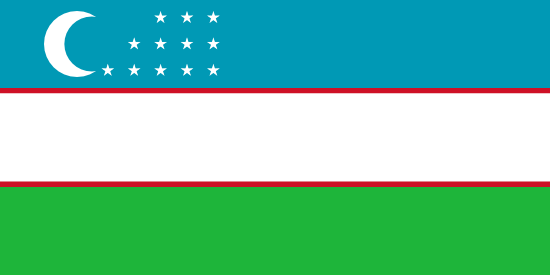
Health Insurance in Uzbekistan, Asia
Information expatriation
Capital City: Tashkent
Total area: 447,400 km2
Population: 27,372,000
Money: Currency Converter
Time Zone: List of time zones by country
Calling Code: +998 XXX
Practical Information:
Health Product: Travel Insurance and Health insurance
Health Insurance information and Sanitary Risk: World Health Map
BLOG: Expat Health insurance Information
Here is a brief description of the healthcare system in the country:
· Uzbekistan has a universal healthcare system that aims to provide free medical care to all citizens and residents.
· The system is government-funded through general tax revenues and managed on a national level.
· Primary care is the main point of access delivered through district-level polyclinics, pediatricians and mid-level providers.
· Larger regional and republic hospitals offer more specialized services like surgery, ICUs, and diagnostic technologies.
· Both inpatient and outpatient services exist depending on the level of care needed.
· Coverage focuses on maternal/child health programs, immunizations, and infectious/endemic diseases.
· Healthcare resources are unevenly distributed between urban and rural areas. Infrastructure also varies in quality and modernization.
· High priority health issues include non-communicable conditions, injuries and residual burden of infectious disease.
· Reforms have focused on transitioning to family medicine, digital records, boosting investments, expanding facilities and training workforce.
· While improving, shortages of providers, aging Soviet facilities and inequitable access remain challenges.
Here are some key health considerations for expatriates living in the country:
· Purchase comprehensive international medical insurance, especially for evacuation from remote areas with limited facilities.
· Ensure routine vaccinations are up-to-date, especially for hepatitis A/B, typhoid, flu, measles andothers as needed based on country of origin.
· Only drink bottled/purified water and be cautious with raw fruits/vegetables as gastrointestinal illness can occur.
· Healthcare quality varies significantly between urban vs. rural settings - plan for major cities if possible.
· Bring extra supplies of prescribed medications plus copies of valid prescriptions.
· Road safety risks exist due to inconsistent enforcement of traffic laws - drive defensively at all times.
· Air pollution, especially in industrial centers, may aggravate conditions like asthma. Be prepared.
· Register with nearest embassy in case of need for evacuation assistance or emergency contact.
· Monitor potential health impacts from lifestyle/diet changes or stress of cultural adjustment/isolation.
· Communicate needs in Russian and/or English as proficiency varies outside major cities. Seek translator as needed.
